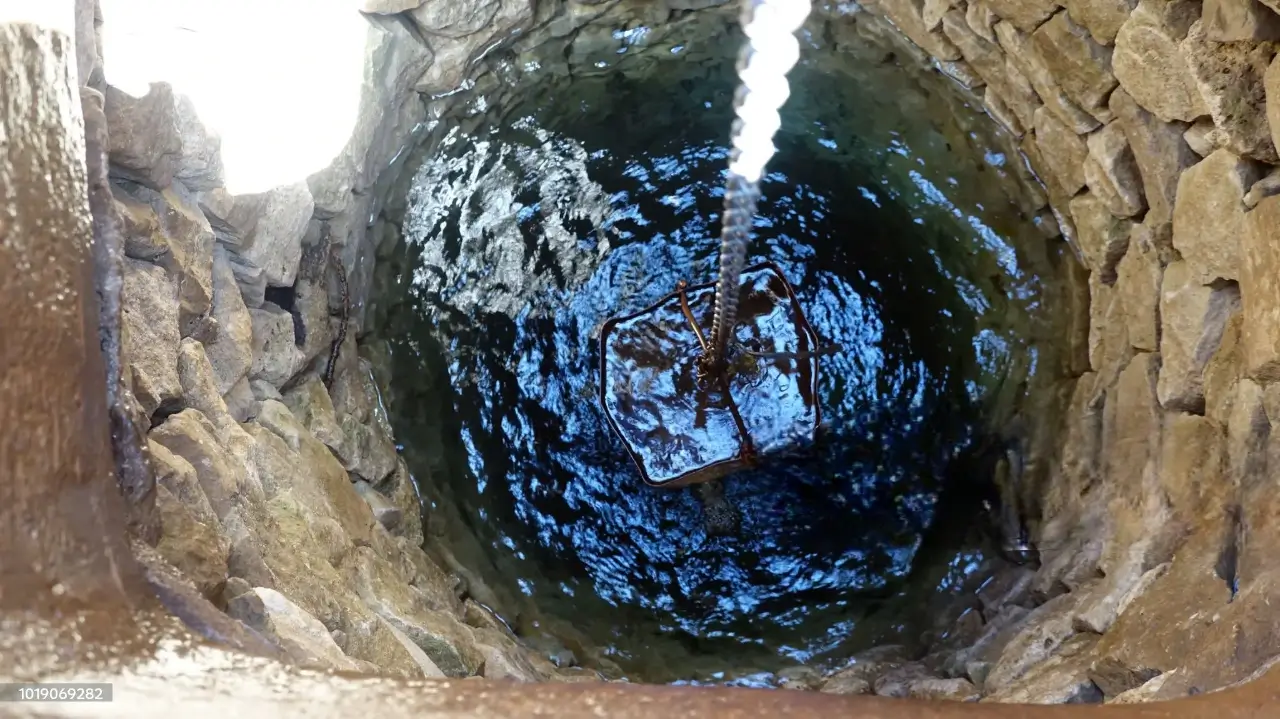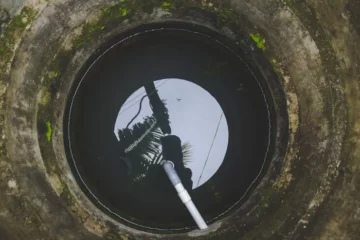Many homes use private well water for daily needs but sometimes face issues with black sediment contamination. The source and risks of these sediments are often debated. To tackle this problem, many people look for effective ways to get rid of these contaminants from their water sources. Over time, the amount of black sediment in well water usually increases.
In this article, We will investigate the answer to your question and also look into the causes or solutions for black well water.
Is Black Well Water Safe?
If your well water suddenly turns black, it’s a sign of trouble. It often means there are contaminants in the water, including:
- Organic Matter: Decaying leaves and other natural sources can stain water black.
- Bacteria and Microbes: These can make you sick.
- Heavy Metals: Manganese and iron can turn water black, and while less dangerous in small amounts, they can cause staining, bad taste, and potential health problems at higher concentrations.
If you notice a strange taste or smell in your black well water, it’s important to get it tested. It could be harmful to your health and may lead to serious diseases.
5 Main Causes of Black Water
Black sediment in well water is often caused by natural minerals, which are generally harmless.
Let us look at each of these possible causes of black sediment in your well water system one by one:
1. Low Water Table
When a well has a low water table, black specks often increase quickly. This happens because there’s less water, so sediments like iron, clay, and black sand collect at the bottom of the well.
In addition, if the aquifer walls are damaged, it can make the problem worse, adding to the black sediment in water wells.
2. Faulty Well Filters
Nowadays, water purification mostly relies on filtration systems. Many people choose to install these systems at home to make sure they get completely soft and pure water from their taps.
However, if you have a low-quality water treatment system, it won’t work well and won’t remove black sediments from well water effectively.

On the other hand, a good whole-house water filter can get rid of all black specks and impurities from the water, making it better quality. This means you’ll get safe, healthy, and clean drinking water from your taps.
3. Faulty Well Water Heater
If you see black water only when using the water heater, it’s smart to check both the heater and the hot water pipes for rust or damage. Getting a plumber to look at the water heater and pipes can help figure out if there’s a problem.
If the pipes are rusty and corroded, and the water looks red, brownish orange, or black, it’s important to fix the plumbing quickly.
4. A Brand New Well
If you have a newly built well, seeing discolored or dirty water is normal. Finding black particles in your water might mean the well was drilled the right way. When a new well is drilled, the drill bits disturb minerals and sediment as they reach the groundwater.
This can take a few weeks to settle, but it’s usually not a problem. In the meantime, you might choose to use bottled water.
5. Sewage Near Your Well
If you have a septic tank or another sewage treatment system at your home, finding black material in your well water might mean there is a backup in the system. This could lead to sewage getting into the soil near your well.
Finding out that human waste is in your well water is worrying because it could contain dangerous germs and bacteria.
3. How to Fix Black Well Water?
You can use different methods to deal with these contaminants. If iron is making your water brown and taste bad, modern filter systems can remove both manganese and iron without taking away good minerals like calcium.
1. Get Your Water Tested
If you keep seeing dark sediment in your water, the next best thing to do is to get your water tested. This will help figure out exactly what is causing the problem.
2. Fix Failing Septic Tanks or Pipes
If a septic backup is causing the problem, dealing with that should be your first step to fixing black sediment in water caused by human waste. In addition, if your septic tank has never been checked before, it might be a good idea to have a professional pump it out and clean it well to solve this issue.
In addition, if old rubber hoses or corroded pipes are making your water have dark sediment, it’s best to replace them.
3. Install A Sediment Filter
Sediment filters are great at getting rid of black sediment in well water. They work by catching tiny sediment particles that cause stains and bad smells, and they can reduce the amount of metals getting into your plumbing system.
If sand is the main problem in your well water, think about getting a sand separator. These separators are usually installed between the well pump and the pressure tank. They are designed to stop sand from getting into the lower part of the well where the pump is.
4. Buy Manganese Filter
If manganese is causing black sediment in your water, you might want to use a green sand manganese filter made for well water. These filters work by activating green sand, which is made of granular ferric oxide, as water passes through it.
When the manganese in your well water goes through the filter, it gets oxidized, turning into a form that doesn’t make black sediment or give the water a bad taste.
It’s worth noting that iron filters need regular maintenance and chemical treatments to keep working well.
So, if your well water has a lot of manganese, the extra work needed to maintain iron filters might not be worth it for you.
5. Water Softener For Your Well
If dark-colored matter in your water comes from high levels of minerals like calcium or magnesium, it’s helpful to treat this specific issue.
High mineral content, which creates hard water, can cause scaling inside metal pipes, leading to rust and corrosion.
Hard water additionally complicates the cleaning of sinks, tubs, and toilets, and if left untreated, can leave spots on glass shower doors. Luckily, you can solve hard water problems effectively with a water softener.
Different types of water softeners work by removing calcium and magnesium from your well water using an ion exchange process, similar to what modern dishwashers do to soften tap water.
Conclusion
Black sediment in water is a common problem that you can solve with the right filter.If you find black sediment in your well water, it’s a good idea to test it to find out exactly what’s causing the problem. Then, you can put in one or more filters designed to deal with that specific issue.
FAQs
Are there health risks associated with black well water?
Yes, there can be health risks associated with black well water, including exposure to bacteria, heavy metals, or other contaminants that can cause gastrointestinal issues, skin problems, or other health concerns.
How can I test black well water for contaminants?
You can test black well water for contaminants by using water-testing kits or by contacting a certified laboratory for comprehensive water analysis.
What treatment options are available for black well water?
Treatment options for black well water may include filtration systems, water softeners, chlorination, UV sterilization, or other methods tailored to the specific contaminants present.
Can black well water be filtered or purified?
Yes, black well water can be filtered or purified using appropriate filtration systems or treatment methods designed to remove the specific contaminants causing the discoloration.
Are there any natural remedies for treating black well water?
Some natural remedies, such as aeration or oxidation, may help address certain types of black discoloration in well wate but their effectiveness can vary depending on the cause.





